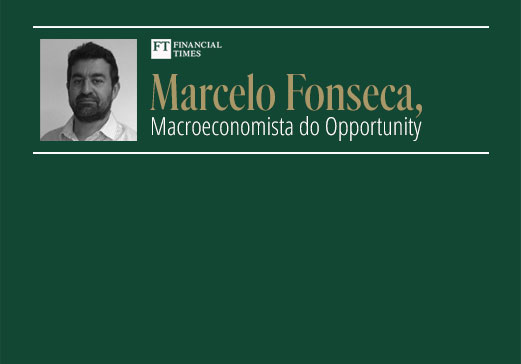Brazil finmin ‘not worried’ by currency’s tumble to record low
Rate cuts and weakening inflows hurt currency, with no support from government
The real has been under pressure since the middle of this year, with a fresh slide over the course of November prompted by general weakness in emerging markets, a series of interest-rate cuts and rising political tensions.
But late on Monday, top policymakers dismissed concerns about the exchange rate. “We have a floating currency, so it floats,” said finance minister Paulo Guedes, in comments that prompted the real to sink further. On Tuesday the country’s central bank intervened in the foreign exchange market for the first time in three months, briefly halting the slide.
“I’m not worried about the high dollar,” Mr Guedes said. “On the contrary, I think it is absolutely understandable . . . When you have stronger fiscal policy and lower interest rates, the equilibrium exchange rate is higher.”
The dollar poked above 4.26 reais in early trading on Tuesday, piercing the previous record low last seen in 2015.
“When you have a finance minister say something like that, it is inviting a currency sell-off,” said Paul Greer, a portfolio manager for emerging markets at Fidelity International.
Mr Guedes, a University of Chicago-educated economist, is the lead architect of Brazil’s sweeping economic revitalisation programme, which aims to kick-start growth through a combination of fiscal reforms, deregulation and privatisations.
A central plank of the agenda is the reduction of Brazil’s historically high interest rates, which have this year fallen to a new low of 5 per cent, denting the real’s appeal as a high-yielding bet.
“Part of the inflows that were coming to Brazil were parked here for return,” said Marcelo Fonseca, an economist with Opportunity Asset Management in São Paulo. “They are now gone and that is very noticeable in our balance of payments.”
Mr Greer echoed that sentiment. “Back in 2015 we were in double digits, and now the market is expecting [rates] to get to 4 per cent. It’s low yielding, low carry. It’s quite cheap to sell the real,” he said.
From January to October, Brazil’s current account deficit was $45.7bn, from $32bn in the same period last year, fresh data showed on Monday.
André Perfeito, an economist at broker Necton, says the lack of foreign investment in the country is problematic. One clear example, he said, was a recent oil auction, which after much hype garnered little international support.
Mr Perfeito said the real might weaken to 4.30 a dollar, but is unlikely to go further because of Brazil’s “generous level of reserves”.
Omotunde Lawal, head of global emerging market corporate debt at Barings, said: “What Guedes said is fair play, the currency trending a bit weaker isn’t necessarily a cause for concern because there are positives in the short term.
“The weaker real is better for Brazilian corporates, which are the engines for growth in the economy together with consumers.”
Additional reporting by Carolina Pulice.



